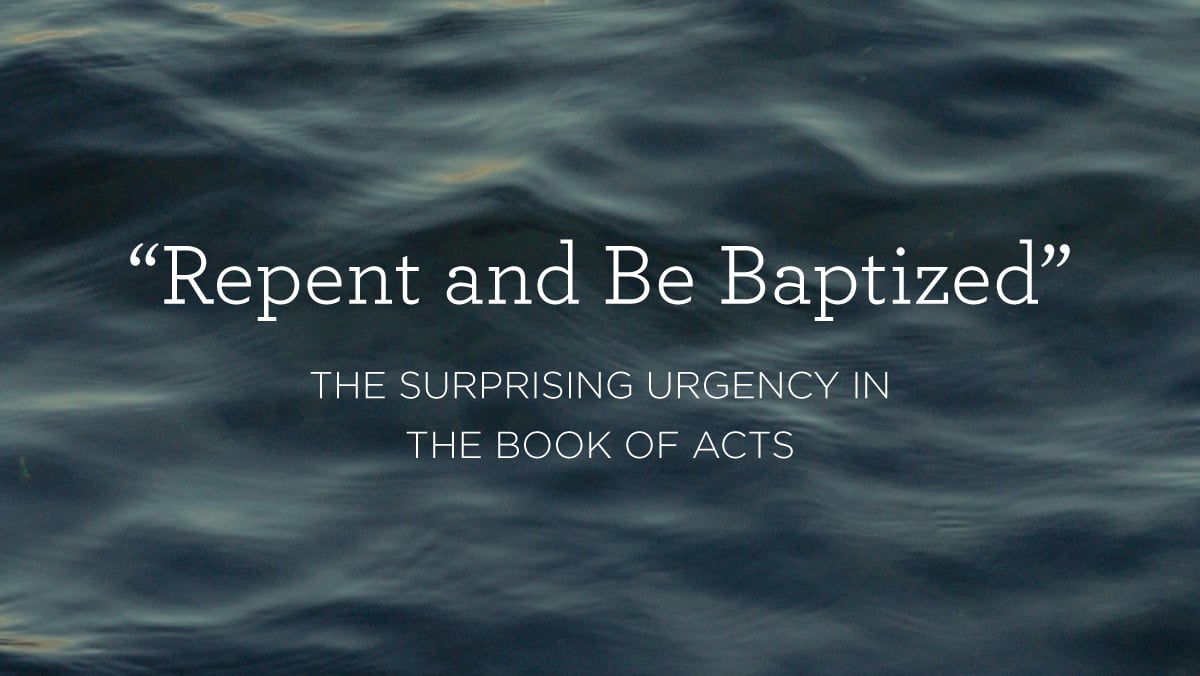A New Building from God
Paul says that when the earthly tabernacle of our body is gone, we will receive a new building from God, eternal in the heavens. 2 Corinthians 5:2 says, “in this tent we groan, longing to put on our heavenly dwelling.” Romans 8:23 says that in heaven even our failing bodies will be redeemed—glorified. Christ himself “will transform our lowly body to be like his glorious body, by the power that enables him even to subject all things to himself” (Phil. 3:21). Our groaning will be ended when we are finally clothed with a heavenly body, with all the same amazing properties of Christ’s resurrection body.
A glorified body alone would be good reason to fix all our hopes and affections on heaven, wouldn’t it? My dear friend Joni Eareckson Tada knows this as well as anyone. Her earthly body was paralyzed from the shoulders down when she dived into shallow water as a teenager. In recent years she has waged a battle against cancer. As long as I’ve known her, she has had her heart set on heaven. It shows in her conversation, her songs, her radio messages, and her artwork. Often it seems as if talking with her draws one to the very edge of heaven, where we can see in. Joni explains this in her book on the subject:
I still can hardly believe it. I, with shriveled, bent fingers, atrophied muscles, gnarled knees, and no feeling from the shoulders down, will one day have a new body, light, bright, and clothed in righteousness—powerful and dazzling. . . .
It’s easy for me to “be joyful in hope,” as it says in Romans 12:12, and that’s exactly what I’ve been doing for the past twenty-odd years. My assurance of heaven is so alive that I’ve been making dates with friends to do all sorts of fun things once we get our new bodies. . . . I don’t take these appointments lightly. I’m convinced these things will really happen.1
Whether or not the apostle Paul made appointments with people as he looked ahead to heaven, Scripture does not say. But clearly he had that very same kind of vivid expectation as he waited for heaven. Look again at these first few verses of 2 Corinthians 5:
We know that if the tent that is our earthly home is destroyed, we have a building from God, a house not made with hands, eternal in the heavens. For in this tent we groan, longing to put on our heavenly dwelling, if indeed by putting it on we may not be found naked. For while we are still in this tent, we groan, being burdened—not that we would be unclothed, but that we would be further clothed, so that what is mortal may be swallowed up by life. (2 Cor. 5:1–4)
In this body we groan because we are burdened by sin, sickness, sorrow, and death. Yet we don’t want to be unclothed. In other words, we have no ambition to become disembodied spirits. That’s not what we’re yearning for. We want both our spirits and our bodies to enter the presence of God. And that is God’s plan, too.
Some people have the notion that heaven is wholly ethereal, spiritual, and unreal. They envision it as a wispy, intangible existence in a dreamlike spiritual dimension. That is not the biblical conception of heaven. In heaven we will have real bodies—changed, glorified, made like Christ’s resurrection body (Phil. 3:21)—bodies more solid than our current state, because they will not be subject to the effects of aging, injury, illness, or death. “This perishable body must put on the imperishable, and this mortal body must put on immortality. When the perishable puts on the imperishable, and the mortal puts on immortality, then shall come to pass the saying that is written: ‘Death is swallowed up in victory’” (1 Cor. 15:53–54). And when I get my glorified knees, I already have an appointment to go for a long run with Joni Tada.
Our groaning will be ended when we are finally clothed with a heavenly body, with all the same amazing properties of Christ’s resurrection body.
No Place like Home
Paul says, “He who has prepared us for this very thing is God, who has given us the Spirit as a guarantee” (2 Cor. 5:5). The Greek word translated “guarantee” is arrabōn, the same word Paul used in Ephesians 1:14, also referring to the Holy Spirit. In modern Greek a form of this ancient word, arrabōn, is used to signify an engagement ring. In New Testament times it usually referred to a down payment or first installment on a debt—earnest money. So, the Holy Spirit is a token of God’s pledge to us that even our bodies will be made new and imperishable in the glory of heaven.
Paul goes on to apply this truth in very practical terms: “So we are always of good courage. We know that while we are at home in the body we are away from the Lord, for we walk by faith, not by sight. Yes, we are of good courage, and we would rather be away from the body and at home with the Lord” (2 Cor. 5:6–8). This world held no fascination for Paul. He longed for the world to come.
Do you find it difficult to say honestly that those verses express the deepest desires of your heart? There is a tendency for most of us to hold tightly to this world because it is all that we know. It is familiar to us. All our dearest relationships are built here. We too easily think of it as home. So we become captive to this life. But notice that Paul says he would rather be “at home” with the Lord. That is precisely what the Greek expression in the original text signifies. It is a form of the verb endēmeo, “to be at home.” We are most truly “at home” only when we are finally with the Lord. Paul understood this. And the knowledge that he belonged in heaven was the very thing that helped him endure the struggles of this life.
We too should long to be clothed with our heavenly form. We should look forward to being absent from the body and present with the Lord. We should become more preoccupied with the glories of eternity than we are with the afflictions of today.
Notes:
- Joni Eareckson Tada, Heaven (Grand Rapids, MI: Zondervan, 1995), 53–55.
This article is adapted from The Glory of Heaven by John MacArthur.

John MacArthur (1939–2025) is the late pastor-teacher of Grace Community Church in Sun Valley, California, where he served since 1969. He is known around the world for his verse-by-verse expository preaching and his pulpit ministry via his radio program, Grace to You. He wrote or edited nearly four hundred books and study guides. MacArthur also served as chancellor emeritus of the Master’s Seminary and Master’s University.
Related Articles
10 Obligations Christians Have to Scripture
John MacArthur, Richard Mayhue
June 08, 2020Throughout his New Testament writings, the apostle John summarized a Christian’s obligation to obey the Scriptures. He made it clear that walking in the ways of the word was not optional.
The First Adam, the Last Adam, and the Gospel
January 23, 2017John MacArthur discusses the historicity and significance of Adam in the Bible.
February 11, 2020The same grace that saves sinners from the penalty of their sin also instructs them in holiness.
Spending the Rest of Your Life Teaching Sound Doctrine
February 10, 2017If you're going to enter the ministry, whether as a missionary or a pastor, you will spend the rest of your life (if you're faithful) teaching sound doctrine.
Crossway is a not-for-profit Christian ministry that exists solely for the purpose of proclaiming the gospel through publishing gospel-centered, Bible-centered content. Learn more or donate today at crossway.org/about.











 English (US) ·
English (US) ·